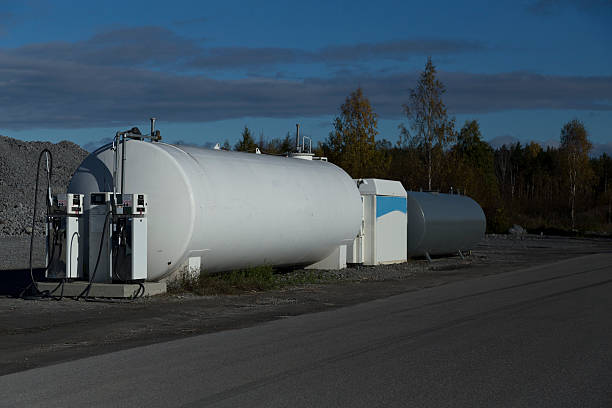Urban Propane Delivery: Overcoming Obstacles

Strategies for Navigating Urban Challenges
Delivering propane in urban environments presents unique challenges compared to rural or suburban settings. From navigating tight city streets to adhering to stringent regulations, urban propane delivery requires innovative solutions. Here, we highlight effective strategies for addressing these challenges and ensuring reliable, efficient service within cities.
Optimizing Route Planning
In the maze of urban streets, efficient route planning is essential. Utilizing GPS and route optimization software can help drivers avoid traffic congestion and identify the quickest, most fuel-efficient routes. This technology can also adapt to real-time traffic conditions, further optimizing delivery schedules.
Smaller Vehicles for Tight Spaces
The use of smaller delivery vehicles may be necessary due to the narrow streets and limited parking that often present themselves in urban areas. Investing in a fleet of smaller, more maneuverable trucks can make accessing tight spaces easier and reduce the risk of vehicular damage or traffic disruptions.
Flexible Delivery Schedules
Urban customers may have differing availability due to fast-paced city life. Offering flexible delivery windows, including evening or weekend options, can improve customer satisfaction and make scheduling deliveries easier in busy urban environments.
Enhanced Safety Training
The bustling urban environment poses unique safety risks for delivery personnel. Enhanced training programs that focus on urban driving challenges, pedestrian safety, and maneuvering in tight spaces can help prevent accidents and ensure both driver and public safety.
Customer Communication
Effective communication is key to managing customer expectations and handling delivery logistics in urban areas. Digital platforms that allow for real-time delivery tracking, automated notifications, and direct communication between drivers and customers can enhance the delivery experience.
Local Storage Solutions
To circumvent the challenges of frequent trips to and from urban areas, consider establishing local storage solutions. Small, strategically located storage facilities can reduce travel time, lower costs, and ensure a steady supply of propane to meet customer demands.
Regulatory Compliance
Urban areas often have stricter regulations regarding fuel delivery. Staying informed about local laws and regulations and ensuring full compliance is essential to avoiding fines and disruptions. Building relationships with local authorities can also facilitate smoother operations.
Community Engagement
Engaging with the urban community can aid in building trust and understanding. Participating in local events, supporting city initiatives, and maintaining open lines of communication with residents can positively impact your business’s reputation and ease of operation.
Environmental Considerations
Urban populations are increasingly concerned about environmental issues. Demonstrating a commitment to sustainability, such as investing in clean-burning propane vehicles or supporting urban green initiatives, can resonate with city dwellers and differentiate your service.
Tailored Services
Urban customers may have unique needs compared to their suburban or rural counterparts. Offering tailored services, such as smaller tank sizes for limited-space properties or bundled services for multi-unit dwellings, can meet these specific needs effectively.
Strategic Adaptation
Tackling the challenges of urban propane delivery demands a strategic, flexible approach. By leveraging technology, adapting operations to the urban context, and maintaining a strong focus on customer service and safety, propane delivery companies can navigate these challenges successfully and thrive in the urban market.










